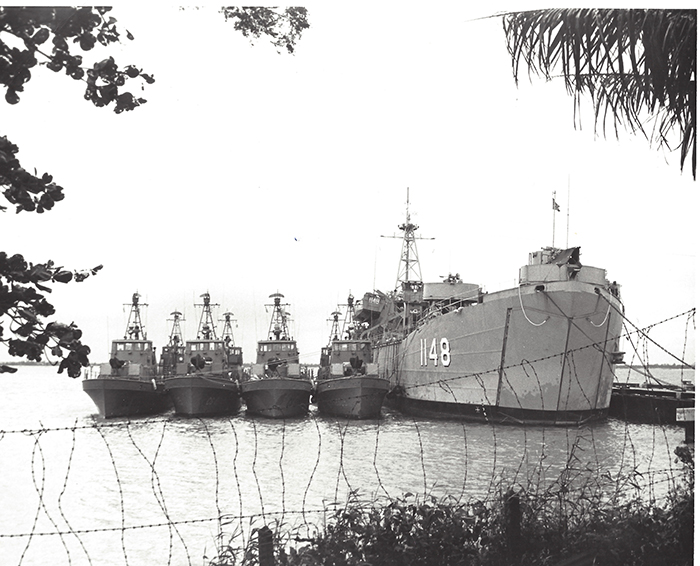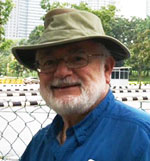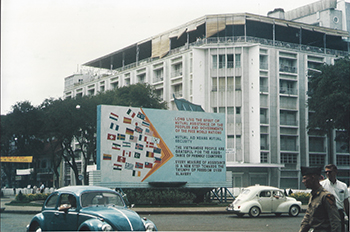
By Oliver B. Pollak, Ph.D ©

RICHMOND, California — It’s the 4th of July and 60 years since, at the age of 17 while in high school, I enlisted in the U.S. Navy Reserve. My parents, refugees from Germany and Austria, reluctantly gave their consent. My family wore British and German uniforms in WWI, in WWII English, Czech and Theresienstadt garb.
I went to boot camp in San Diego, monthly meetings at the Naval and Marine Corps Reserve Center in Chavez Ravine, and on summer two-week cruises. I got deferments during my undergraduate education at Cal State LA and one semester at UCLA graduate school. President Johnson called up the reserves in Spring 1965.
I follow the declining numbers of First World War, Spanish Civil War and World War II veterans. The Vietnam cohort is thinning.
Our Vietnam engagement started in the early 1960s, punctuated by the Gulf of Tonkin Resolution, troop build-up, a quagmire of 58,000 American deaths, untold Vietnamese, Cambodian and Laotian victims, and an Agent Orange legacy of human and environmental destruction. Le Duc Tho and Henry Kissinger signed the Paris Peace Accords in January 1973.
My ship, Sumner County LST 1148, was launched in 1945, stationed in San Diego and decommissioned in 1975. An old salts’ newsletter and emails note the passing of crewmembers. The 2021 reunion is set for Charleston, West Virginia.
My letters from June 1965 to May 1967, to and from my girlfriend Karen, then fiancée and now wife; my sister, and parents, form the basis of Graduate School Interrupted, Love Letters from Vietnam, yet unpublished.
President Johnson’s war manipulation and deception provoked resistance to the Selective Service and draft, demonstrations against ROTC, and sit ins. Peaceniks, conscientious objectors and pacifists took their destinies into their own hands.
A friend resisted the draft and went to federal prison for nine months. He worked in a library for 32 years and protested nuclear power. He died aged 67, the image of principled moral courage. The son of dear friends fled to Canada and taught art. A promising graduate history student either burned his draft card or refused to register and went to prison. Determined to do nothing to acknowledge the existence of government he became a counselor. Two friends found alternative service teaching in disadvantaged schools in the South.
Those who served and were honorably discharged had differently disrupted lives and careers. A classmate from junior high through our junior year in college went into the Army and became a high school teacher. A shipmate earned a business degree and worked in the financial industry. My law partner served in the Navy, his wife in the Air Force. These veterans were all highly educated and successful in their careers, enjoy coffee, wine, don’t smoke and are productively retired.
None of my acquaintances had PTSD, but I know it spoiled the quality of life for many. A fraternity brother was killed in Vietnam. I visited the Vietnam Wall in Washington DC.
Vietnam changed my life. I benefited from the GI Bill and completed graduate school. I wrote my dissertation on Burma, a potential falling domino victim. I taught Southeast Asian history. My library includes Indian Foreign Policy in Cambodia, Laos & Vietnam,1947-1964 by my guru, D.R. Sar Desai in which I am mentioned for working on the Index (University of California Press, 1968); Marigold, The Lost Chance for Peace in Vietnam by James G. Hershberg (Woodrow Wilson Center Press, 2012); and a 1996 Vietnamese cookbook. I vented anger in a jejeune unpublished 1995 rant about Secretary of Defense Robert McNamara. I read recommended books such as The Things They Carried, a novel, by Tim O’Brien (1990) and Robert Timberg’s Blue-Eyed Boy, A Memoir (2014). My Agent Orange disability benefits feed my book budget.

Karen and I visited Ho Chi Minh City (Saigon) and Hanoi in 2018. We were amazed by human industry, harum scarum streets where orderly chaos prevails, graciousness to tourists, and cosmopolitan atmosphere. Our comeuppance was The War Remnants Museum exhibit of American atrocities.
We heal, we make the best of the years that remain, we acknowledge the short shelf life of Vietnam’s lessons, witness Iraq and Afghanistan, where no foreigner ever wins. We are duped by disinformation, Gulf of Tonkin Resolution, Weapons of Mass Destruction, Islamophobia, and step into the morass left by the British, French and Russians. We are exiting Afghanistan, America’s longest war. When will we ever learn? The 9/11 attack revealed the vulnerabilities of the invulnerable. American self-respect and credibility requires appropriate measured response; we are too quick to follow hawks without examining long term contingency potential unexpected consequences.
The long shadow of war may be inscribed on our gravestones, and beyond. We remember the Civil War 160 years ago, albeit not how it used to be remembered, and Auschwitz 80 years ago is memorialized by a traveling exhibition, “Auschwitz Not Long Ago Not Far Away.” Witness memory expires with death, but the texts we write, oral history, and institutional memorials live on.
Vietnamese refugees in America have a voice. Viet Thanh Nguyen born in 1971, fled with his family to the US after Saigon’s fall in 1975. He published The Sympathizer in 2015, won the Pulitzer Prize for Fiction in 2016, and a Macarthur Genius Grant 2017. Our go-to Vietnamese restaurant is a five-minute walk away.
*
Oliver B. Pollak, a professor emeritus of history at the University of Nebraska Omaha, and a lawyer, is a correspondent now based in Richmond, California.
very, very interesting and enjoyable to read; directly and simply stated. Oliver Pollak has experienced an amazing life.
Michael S. Katz, Professor Emeritus, San Jose State University.
Dear Oliver,
How unfair that time was. So many didn’t want to be in Vietnam and didn’t understand why they had to be.
(The draft) Scared very young men not old enough to vote. Many from cities where there were few trees are sent into jungles. Many brought up honoring the ten commandments, the sixth being “thou shall not kill” are now trained to kill.
The families living with the fear that they may not see their child again and many having that being the case. Oliver, this brought back many memories and the song and words “Imagaine” by John Lennon.
Good, informative and interesting read. Thanks